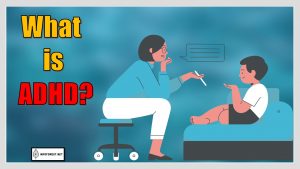
Intermittent fasting is a dietary approach that involves alternating periods of consuming food with periods of fasting or reduced calorie intake. This pattern of eating is intended to promote weight loss, improve metabolism, and offer various health benefits, such as reduced inflammation, increased insulin sensitivity, and increased longevity. Intermittent fasting can take various forms, including the 16/8 method (fasting for 16 hours and eating within an 8-hour window), the 5:2 diet (eating normally for 5 days and restricting calorie intake for 2 non-consecutive days), and alternate-day fasting. While many people find success with intermittent fasting, it’s important to speak with a doctor before starting to ensure it’s a safe and appropriate choice for your individual needs and goals.
What Is Intermittent Fasting (IF)?
Intermittent fasting is a type of eating pattern that alternates between periods of fasting and periods of eating. The goal of IF is to limit the time during which food is consumed, usually by extending the length of the overnight fast, which is followed by a period of eating during the day. The idea behind this approach is that reducing the number of hours in which food is consumed can lead to health benefits such as weight loss, improved insulin sensitivity, reduced inflammation, and increased longevity.
There are several different forms of intermittent fasting, including the 16/8 method, where individuals fast for 16 hours and eat during an 8-hour window, the 5:2 diet, where individuals eat normally for 5 days and restrict their calorie intake for 2 non-consecutive days, and alternate-day fasting, where individuals fast every other day.
It’s important to note that when fasting, individuals should still aim to consume an adequate amount of nutrients, vitamins, and minerals through healthy, nutrient-dense foods. Additionally, while IF can be a helpful tool for weight loss, it’s not suitable for everyone and may not be appropriate for those with certain medical conditions, such as pregnant or breastfeeding women, and people with a history of disordered eating. It’s always recommended to speak with a doctor before starting any new diet or eating pattern.

Intermittent Fasting Methods
There are several different methods of intermittent fasting, including:
- 16/8 Method: This involves fasting for 16 hours and eating during an 8-hour window each day. For example, if you finish your last meal at 7 pm, you wouldn’t eat again until 11 am the next day.
- 5:2 Diet: This involves eating normally for 5 days and restricting calorie intake to 500-600 calories for 2 non-consecutive days.
- Alternate-Day Fasting: This involves fasting every other day, either by consuming only water or a very low-calorie diet.
- 24-Hour Fasting: This involves fasting for a full 24-hour period, usually once or twice per week.
- Eat-Stop-Eat: This involves fasting for 24 hours, once or twice per week.
- The Warrior Diet: This involves eating a small number of raw fruits and vegetables during the day and then consuming a large meal at night.
It’s important to note that not all forms of intermittent fasting are appropriate for everyone, and individuals should always speak with a doctor before starting any new diet or eating pattern. Additionally, it’s important to consume a balanced, nutrient-dense diet while practicing IF to ensure that the body is getting all of the nutrients it needs to function optimally.
We also invite you not to miss our other popular articles such as:
Difference Between Rose Gold and Yellow Gold– ChatGPT–Difference between left and right Twix–Difference Between Eastern Time Zone and Central Time Zone–Difference Between Capitalism and Communism– Difference Between EST and EDT–How many weeks in a Year– Difference Between Evening and Afternoon – Democrat vs Republican
How Intermittent Fasting Affects Your Cells and Hormones
Intermittent fasting can affect various hormones and cells in the body, which can result in various health benefits. Here are some of the ways in which intermittent fasting can impact hormones and cells:
- Insulin sensitivity: Intermittent fasting has been shown to increase insulin sensitivity, which can help regulate blood sugar levels and reduce the risk of type 2 diabetes.
- Growth hormone: Fasting has been shown to increase levels of growth hormone, which can promote muscle growth and fat loss.
- Cellular repair: Fasting can activate a process called autophagy, which is when cells break down and eliminate damaged or malfunctioning parts. This process can improve overall cellular health and reduce the risk of chronic diseases.
- Inflammation: IF has been shown to reduce inflammation in the body, which can help protect against chronic diseases such as heart disease, Alzheimer’s, and cancer.
- Metabolism: Intermittent fasting has been shown to increase metabolism, which can help with weight loss and improve overall health.
It’s important to note that individual results may vary and that not all of these effects have been proven in scientific studies. Additionally, not all forms of IF are appropriate for everyone, and individuals should always speak with a doctor before starting any new diet or eating pattern.
Health Benefits
Intermittent fasting has been associated with a number of potential health benefits, including:
- Weight loss: Intermittent fasting can help with weight loss by reducing overall calorie intake and increasing metabolism.
- Improved insulin sensitivity: Intermittent fasting has been shown to increase insulin sensitivity, which can help regulate blood sugar levels and reduce the risk of type 2 diabetes.
- Reduced inflammation: Fasting has been shown to reduce inflammation in the body, which can help protect against chronic diseases such as heart disease, Alzheimer’s, and cancer.
- Increased longevity: Intermittent fasting has been associated with increased longevity, as it has been shown to improve cellular repair processes and reduce oxidative stress.
- Improved brain function: Intermittent fasting has been shown to improve brain function by reducing oxidative stress and promoting the growth of new brain cells.
- Lower risk of chronic diseases: Intermittent fasting has been associated with a lower risk of chronic diseases, including heart disease, Alzheimer’s, and cancer.
It’s important to note that not all of these benefits have been scientifically proven, and individual results may vary. Additionally, not all forms of intermittent fasting are appropriate for everyone, and individuals should always speak with a doctor before starting any new diet or eating pattern.

Who Should Be Careful Or Avoid It?
Intermittent fasting may not be appropriate for everyone, and some individuals may need to exercise caution or avoid it altogether. Here are some groups of people who should be careful or avoid intermittent fasting:
- Pregnant or breastfeeding women: Pregnant and breastfeeding women have increased nutrient needs, and fasting could negatively impact their health and the health of their baby.
- Children: Children have rapidly growing and developing bodies, and fasting could negatively impact their growth and development.
- Individuals with a history of disordered eating: Intermittent fasting can trigger disordered eating patterns, and individuals with a history of eating disorders should avoid it.
- Individuals with medical conditions: Individuals with medical conditions such as hypoglycemia, liver or kidney disease, or a history of malnutrition should avoid intermittent fasting without medical supervision.
- Individuals taking medication: Individuals taking medication should consult with their doctor before starting intermittent fasting, as fasting can impact the effectiveness and dosage of certain medications.
It’s important to speak with a doctor before starting any new diet or eating pattern, especially if you have a medical condition or are taking medication. This will help ensure that intermittent fasting is safe and appropriate for you.
Safety and Side Effects
Intermittent fasting can be safe for many people when done correctly, but there are also some potential side effects to be aware of. Here are some of the safety concerns and side effects associated with intermittent fasting:
- Hunger: One of the most common side effects of intermittent fasting is hunger, especially during fasting periods.
- Low energy levels: Fasting can lead to low energy levels, especially during fasting periods.
- Headaches: Some people may experience headaches while adapting to intermittent fasting.
- Dehydration: Intermittent fasting can increase the risk of dehydration, especially if fluids are not consumed during the eating periods.
- Dizziness or fainting: Some people may experience dizziness or fainting while fasting, especially if they stand up too quickly.
- Irritability or mood swings: Fasting can sometimes cause irritability or mood swings.
- Difficulty sleeping: Intermittent fasting can sometimes interfere with sleep patterns, especially if the last meal of the day is consumed late in the evening.
It’s important to listen to your body and make adjustments as needed, such as taking breaks from fasting or drinking more fluids during the fasting periods. Additionally, individuals should always speak with a doctor before starting any new diet or eating pattern, especially if they have a medical condition or are taking medication.
Most Viewed Articles
Conclusion
In conclusion, Intermittent fasting is a pattern of eating that alternates periods of fasting and eating. There are several methods of intermittent fasting, including the 16/8 method, the 5:2 diet, and alternate-day fasting. While there is some evidence to suggest that intermittent fasting can have potential health benefits such as weight loss, improved insulin sensitivity, and reduced inflammation, it’s not appropriate for everyone and may have some potential side effects such as hunger, low energy levels, and headaches. Before starting any new diet or eating pattern, it’s important to speak with a doctor to ensure that it is safe and appropriate for you. Intermittent fasting should be approached with caution, and individuals should monitor their symptoms and adjust their fasting patterns as needed to ensure that they are able to continue fasting safely and effectively.
We also invite you not to miss our other popular articles such as:
What is Creatine–What is ADHD–How to write a CV– What Is Collagen–What Is Dragon Fruit– Mediterranean Diet–Characteristics of a Narcissist–What is SEM – What is SEO–What is RSV– What Is Web 3.0–What is NFT–What is a Recession– What Is Bitcoin– What Is PayPal and How Does it Work – Kilometer vs Mile – How to get rid of hiccups What does TBH mean – What does NSFW mean – What does IG mean–What does CAP mean– What is normal blood pressure –What is the rarest blood type–Difference Between Hotel And Motel – Differences Between Chinese and Japanese and Difference Between Zip Code and Postal Code







